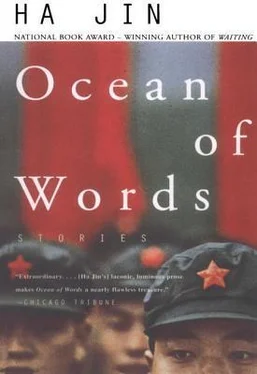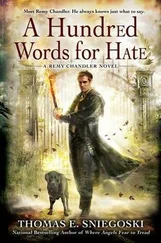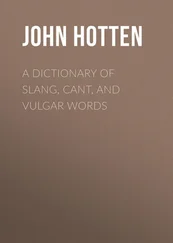This time Dragon Head came to help us out. On the morning two days before the Spring Festival, a large group of militiamen arrived at our headquarters. In the front yard they were blowing suona , beating drums and gongs and letting off double-bang firecrackers. Commissar Diao and I rushed out. A broad red banner, with the golden words MILITIA OF GUANMEN on it, was flapping away in the north wind. Every one of them carried a gun on his back. Warm breath was puffing out from their mouths and nostrils. Dragon Head, standing at the front, raised his right hand while his left hand remained stuck behind his Mauser. Immediately the men moved to both sides and a pass was opened through them. Then ten pairs of men, poles on their shoulders, carried over ten boars, which were held upside down by hemp ropes tied to the hind trotters. They placed the frozen carcasses on the ground one by one in a line. The first boar was covered with a large piece of red paper on which a row of characters in black ink read: FOR OUR BELOVED LIBERATION ARMY.
I was moved and went to Dragon Head. We shook hands. Commissar Diao was also delighted; he held Dragon Head’s hand and spoke. “We are very grateful, Comrade Dragon Head, and we won’t forget the kindness and the trust of your people.”
“It’s our duty to bring our best wishes to our own army,” Dragon Head said, wiping the frost off his mustache.
“Dragon Head,” I said, “we won’t take these free. We must pay you. Tell us how much for each.”
“What?” He frowned. “Commander Gao, you’re not treating us as your own people if you say so. All right, if you want to buy, we won’t sell.” He was about to turn to his men.
“Wait, wait,” Commissar Diao intervened. “Commander Gao didn’t mean to take you as outsiders, Dragon Head. Chairman Mao has instructed us not to take from the people ‘a needle or a piece of thread.’ You know, we must always follow the Chairman’s instruction. Old Gao was not wrong to mention the price, but he forgot that these boars are not from common people but from another unit, from our comrade-in-arms Dragon Head’s company. Please don’t mis-undertand us; we do want to accept your kind gifts.”
“That’s the way of saying things. Ha-ha-ha!” Dragon Head threw his head back and laughed. All his men followed him guffawing.
So we accepted the boars. Each company got three, and the Battalion Headquarters kept one. The major problem had been solved: as long as we had enough meat, it would not be difficult to feed our men.
At my suggestion, we planned to give a banquet to the village heads and the production brigade leaders on the Spring Fetival’s Eve. We ought to find a way to pay them back for their kindness. For whatever reason, we should not take things from the people without giving them something in return. Those boars could by no means come from Dragon Head’s own home. Besides, we had caused a great deal of inconvenience to the villagers ever since we began lodging in their homes. This was the time to show our gratitude. Commissar Diao supported the idea.
The banquet was held at the meeting room of the production brigade, which was cleaned up and decorated for this occasion. A pair of colorful lanterns hung at the entrance, and a couplet written on two broad bands of red paper was pasted on the walls on each side of the door: THE ARMY AND THE PEOPLE ARE UNITED LIKE FISH AND WATER / WITH SOARING ASPIRATION WE WELCOME ANOTHER SPRING. I didn’t think Scribe Niu Hsi had done a good job in making the poetry, but we were army men and shouldn’t be fastidious about words. Inside the room twelve square tables were set in three lines, and at the center of each table four candles, as thick as grenades, stood burning. The room was ablaze with a swarm of flames.
On the army side, all the battery commanders and political instructors and the officers in the Battalion Headquarters attended; on the villagers’ side, all the local powers were invited, including the head of the blacksmith’s shop and the only doctor at the village clinic. All together there were about ninety people. The dishes were not fancy, but they were substantial: stewed pork, scrambled eggs, fried cutlass fish, horsemeat balls … Wine was plentiful — three full vats stood against the wall. After Commissar Diao and the Party secretary of the production brigade, Liu Ming, made their speeches, people started to enjoy themselves.
As the heads of the army, Diao and I were obligated to go to every table and to propose toasts, but Diao had little capacity for liquor, so we had arranged beforehand that I would carry out the obligation alone. Holding a green enamel mug, I made my way from table to table.
I met Dragon Head and his men at the eighth table, the noisiest one. They ate meatballs with their hands and had a large basket of cutlass fish in the middle of the other dishes. At the corner of the table lay a short braid of large garlic, which they had brought for the feast.
“Merry Spring Festival, Dragon Head,” I said with a smile.
“Happy holiday, Commander Gao.” He raised a huge bowl, which looked like a small basin, and took a gulp.
“Let us drink to our solidarity,” I proposed.
“Sure, glasses dry.” Seeing me hesitating, he said, “Why? You don’t want to? My bowl’s three times bigger than your mug.”
Without a word, I drank up the mugful of corn liquor and then held the mug upside down.
“Good man!” they cried in one voice.
Dragon Head raised the bowl to his mouth and started drinking. A purple vein was quivering on his neck. I watched him with admiration.
When he finished, one of his men said, “Brother Dragon can swallow a sea.”
We shook hands, and his eyes shone with happiness. When I returned to my table, Commissar Diao awaited me there. We agreed that everything had gone well. He wanted to leave early to visit the men in the batteries. I told him that I wouldn’t hang around for long and would go to the Third Battery soon. Apart from wishing the soldiers a happy Spring Festival, we would also make sure that everything was in good shape, because our battalion had been ordered to stay in first-degree combat readiness during the holiday. For a whole week everybody had to sleep with his clothes on.
The village’s show team arrived and started performing in the front of the room. A man in light green silks and a woman in pink, both with painted faces, were wheeling around, singing in turn the local opera The Couple’s Twirl. The woman sang:
Watermelons here are big and sweet,
We club roe deer in our backyard,
Pheasants sneak in to steal wheat,
Fish jump into pails and splash hard.
But take me with you, my sweetheart,
On your three-horse cart.
We shall journey, never apart,
Never apart, never apart …
I was about to leave, but Dragon Head came to my table with the large bowl in his hand. Behind him came Wang Si, carrying a plastic gasoline can containing white spirits. “Commander Gao,” Dragon Head said, “I like … like your way of drinking. Let’s have a-another.” He held out his bowl and Wang Si filled it. A wart protruded beneath Wang Si’s ear like a squashed fly.
“Dragon Head,” I said, “you shouldn’t drink more. We’re in combat readiness now.”
“This stuff won’t hold us back.” He drank up the whole bowl, then looked at me with his bloodred eyes. “We set out tonight … and drive … drive the Russian Tartars down … down into the Arctic Ocean. Give us orders, Com-Commander Gao.”
“Dragon Head, you need a rest.”
“No.” He held out his bowl again, and Wang Si refilled it. “All the northern land, from Sakhalin … to Mo-Mongolia, is ours. The Russians took it … from us. We must take it back! Screw their ancestors, they killed my … my gre-great-grandpa in Vladivostok. He was … doing business there — ”
Читать дальше











